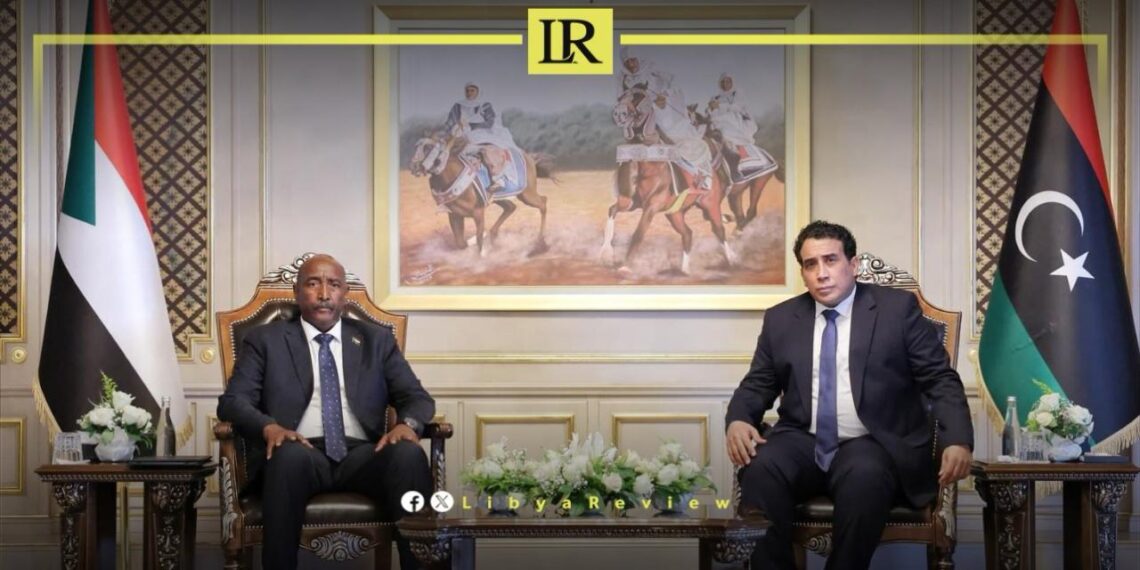The head of the Libyan Presidential Council, Mohamed al-Mnifi, and the President of Sudan’s Sovereignty Council, First Lieutenant General Abdel Fattah Al-Burhan, have agreed to enhance bilateral relations through the exchange of delegations and the activation of previously signed agreements during discussions in Tripoli.
The talks focused on bolstering economic, political, and military ties between Libya and Sudan, with a mutual goal of achieving peace and stability in Sudan and the broader region.
Al-Burhan commended Libya for its supportive stance towards Sudan in regional and international forums, highlighting Libya’s advocacy for Sudan’s unity, national security, and stability, and its opposition to negative foreign interventions.
During a joint press conference, Al-Burhan expressed gratitude towards Libya for hosting tens of thousands of Sudanese refugees. Al-Mnifi received Al-Burhan at Mitiga International Airport, accompanied by key Libyan military and governmental officials.
This official visit by Al-Burhan came following an invitation from Al-Mnifi, aiming to discuss the enhancement of bilateral relations and mutual interests between the two nations.
The city of Kufra in southeastern Libya is currently facing a humanitarian challenge due to a significant influx of Sudanese refugees fleeing unrest. The situation at the Kufra crossing has led to overwhelmed local resources and difficult conditions for the newcomers.
Mohamed Younis, representing the Sudanese community in Kufra, has raised concerns about the inadequate living conditions for the refugees, with many lacking proper shelter and relying on limited grassroots aid efforts. Despite assistance from the Libyan National Army and the local Sudanese community, the support available falls short of meeting the growing needs.
Abdallah Suleiman, spokesperson for the Kufra municipal council, noted the lack of specific actions from Libya’s divided governments to address the crisis, emphasizing the municipality’s efforts to manage the situation with its constrained resources. An emergency committee has been established, yet the scale of the challenge remains significant.


